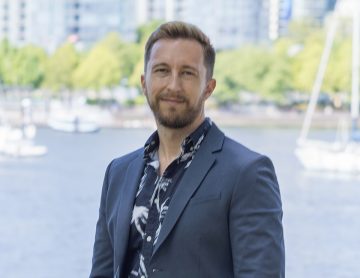
Research Associate
Dr. Chris Kay is a geneticist and molecular biologist working to understand the pathogenesis of Huntington disease (HD). He earned his doctorate in Medical Genetics at the University of British Columbia under the guidance of Dr. Michael Hayden, leading target discovery of genetic variants for therapeutic silencing of the Huntington disease (HTT) gene. Dr. Kay has also made key contributions to understanding the population genetics of Huntington disease, including detailed haplotype analysis of the HD mutation in different populations, somatic and germline instability measurements of HD intermediate alleles, and estimation of the penetrance of the HD mutation for manifest disease. Prior to returning to the Hayden Lab and HD research in 2022, he worked for three years in commercialization and patenting of life sciences assets in academia and the biotechnology industry. In his current research, Dr. Kay focuses on the clinical ascertainment and biological understanding of genetic variants that modify the presentation of HD. He is the 2023 HDSA Berman-Topper Career Development Fellow, awarded to one early-career HD researcher worldwide per year.
Dr. Kay, I am Carol Carlson, family researcher and resident of Lansing, Michigan. In doing family history for a late brother in law’s family, I am strongly suspicious of a family history of HD going back to an ancestor born in England in 1808 (this same little village sent someone to Australia who carried HD).No actual diagnoses, but a rather incredible collection of suicides and mental hospital confinements in one generation, plus numerous suspicious deaths in three, four and five generations down. Three other distinct families that I have come across due to public stories (forensic) again seem strongly suggestive (having done extensive research on them through public records), yet no diagnosis anywhere. In watching your “ABC’s of CAGs” seminar and the number of people unaware of HD who actually have the allele, combined with 4 families that I know of, in my little world, completely unaware, it would seem that many more families carry HD than is currently suspected. Knowing about the full range of carriers would certainly help research with cure/treatment possibilities. Question: would it be possible to start looking by running automatic HD tests on all completed suicides?